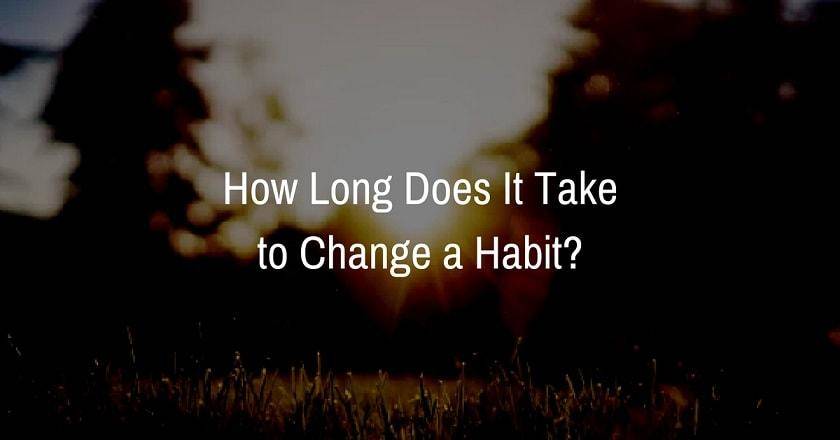How Long Does It Take to Change a Habit

Updated: August 2021
Reading Time: 6 Minutes
Drug and alcohol rehabs are acutely aware how long it takes for the majority of people to change a habit. After all, one of the main things that rehabs specialise in is changing habits and behaviors. Alcohol and drug workers have a deep understanding of how to change habits because they have first hand experience. But before we get into the solution, let’s take a step back.
What Are Habits?
A habit is simply the repeated tendency of an individual, towards a certain behaviour. When behaviours are repeatedly performed, they become habitual and neural pathways are created in the brain, strengthening and reinforcing the action of the habit (1).
Smokers will reach for another cigarette instinctively. Drinkers will order another beer without consciously thinking. Drug addicts won’t question having another hit. After time, these become automated rituals, performed without conscious analysis.
Changing a bad habit can be difficult because it requires the brain to change. This is why quitting drugs and stopping alcohol can’t be done overnight. It takes time and focus.
The Old Assumptions About Changing Habits
21 Days
A common assumption is that it takes 21 days to change a habit. The evidence suggests it takes longer. It is not totally clear where the figure of 21 days came from. Many suspect it originates from a 1970’s book written by Maxwell Maltz called Psycho-Cybernetics. In his book, he suggested it took a minimum of 21 days to change a habit.
Research from Phillippa Lally from University College London indicates that it takes on average around 66 days to start changing habits (2). She examined habit formation in a study of 96 people over a 12 week time frame. Study participants could choose an array of habits to implement, from exercising daily to drinking water.
66 Days
The study found that it took participants on average 66 days to form a habit. Researchers were able to estimate the long end of habit change for some participants – this being 250 days (even though the study ran for just 12 weeks).
This study provides some evidence for helping people to make decisions around changing habits such as quitting alcohol or drugs. 21 days isn’t enough time for the brain to change substantially. This is why most rehabilitation centres recommend 60 days or more.
Thirty day drug and alcohol rehab programs are popular the world over. They serve a real bona fide purpose to bring change to people’s lives. People enter a supportive and structured environment without the normal drug or alcohol enforcing triggers. However, we can’t assume that when someone leaves rehab after 30 days they’re all set. As the study suggests, a term closer to or over 66 days is more likely to yield a better recovery probability. In any case, recovering long term requires support and guidance well into the future regardless of rehab stay.
Anecdotally, we notice that people that stay on the longer end of the spectrum, are more likely to change their habits and respond to treatment.
Where to Get Help with Changing Habits and Rehab
If you are in the midst of drug and alcohol addiction and you are wanting to seek help or guidance, please speak to your GP and or medical specialist.
If you’re considering drug or alcohol rehab in Melbourne, for you or for a loved one or friend, you are more than welcome to talk to Barbara Kustra or her team here at Refocus. We can provide some guidance in determining whether private rehab is the right option and talk to you about changing habits.
To speak to the team here at Refocus, contact us or call (03) 9537 0880.
